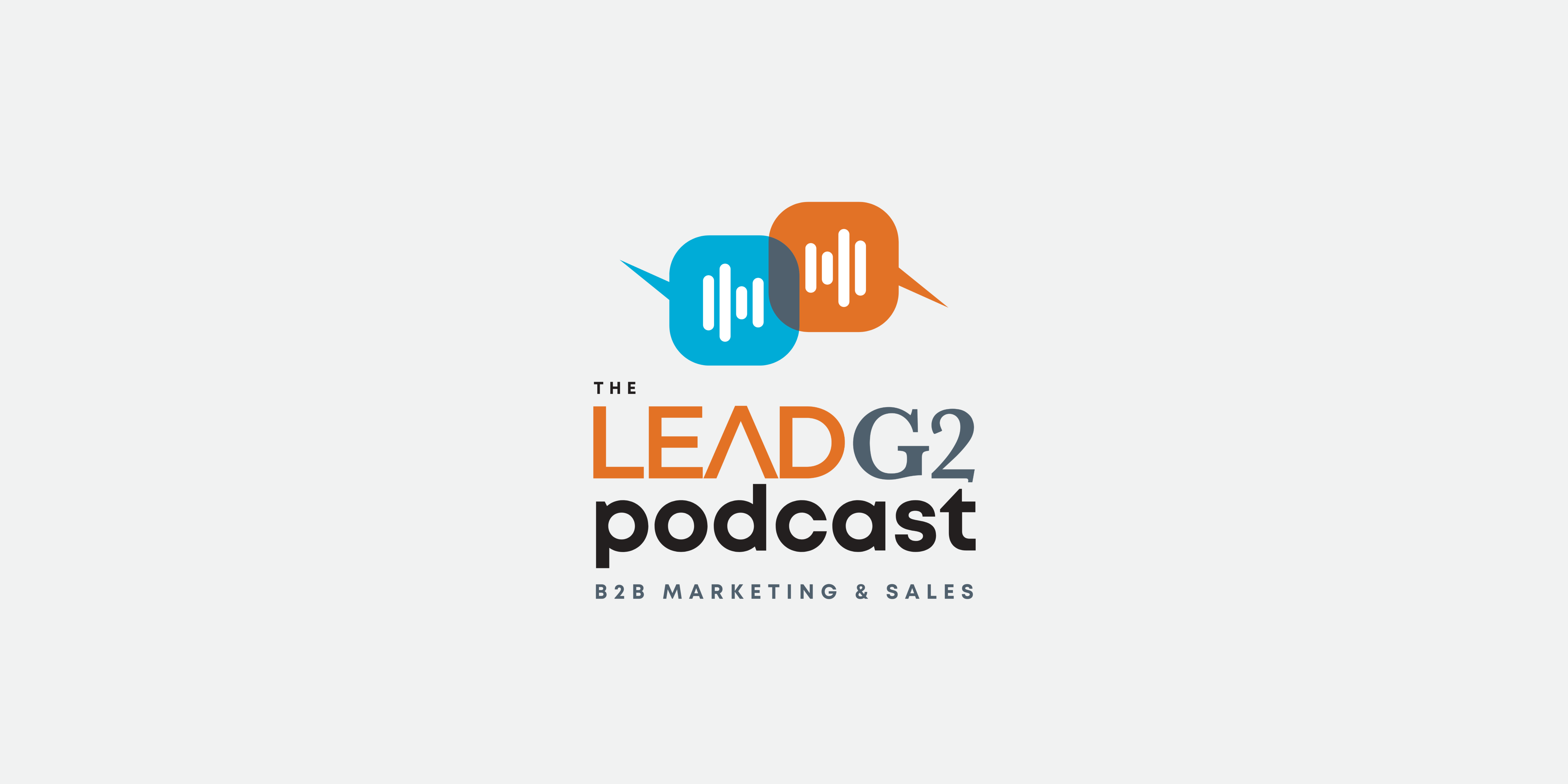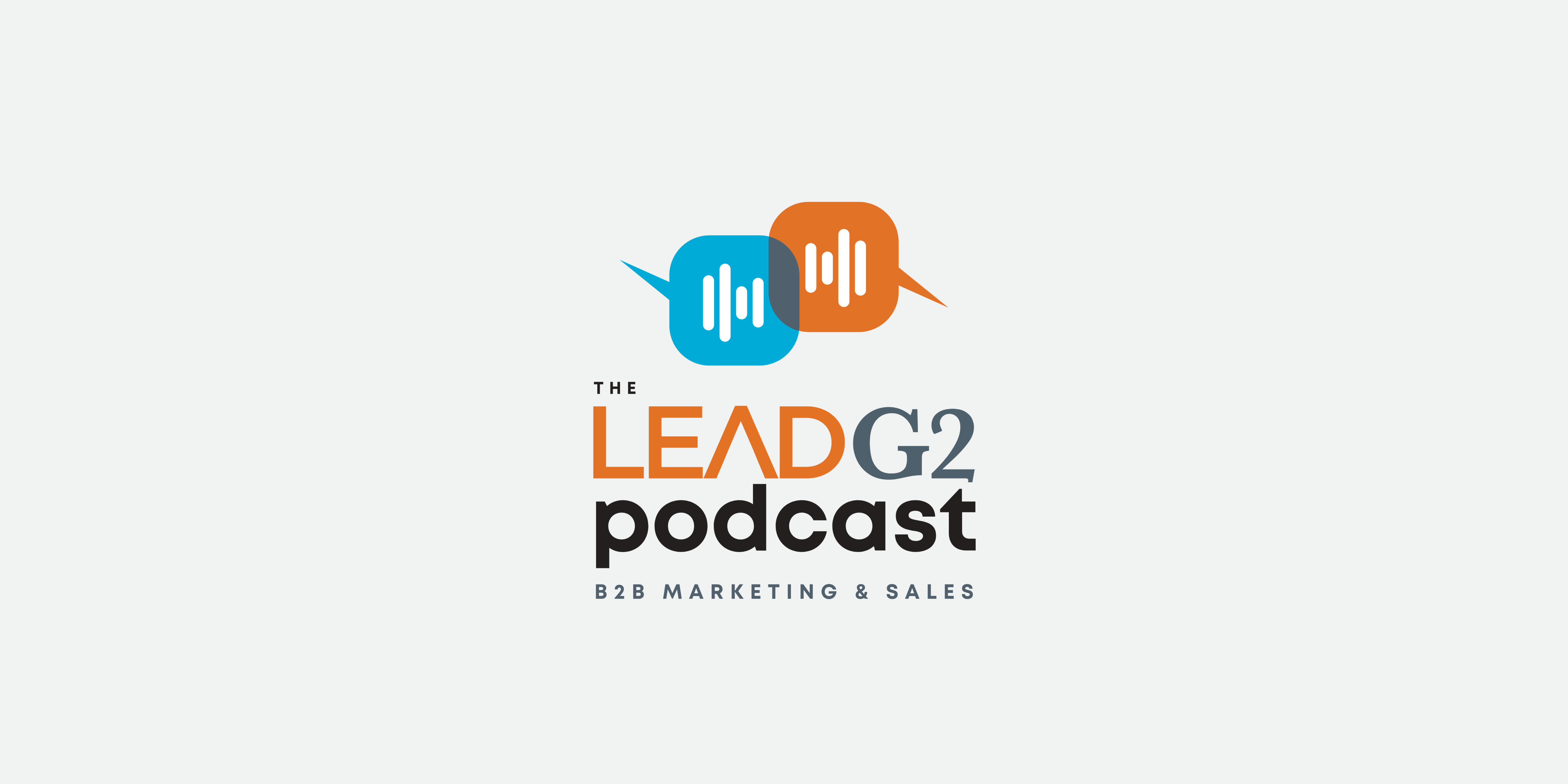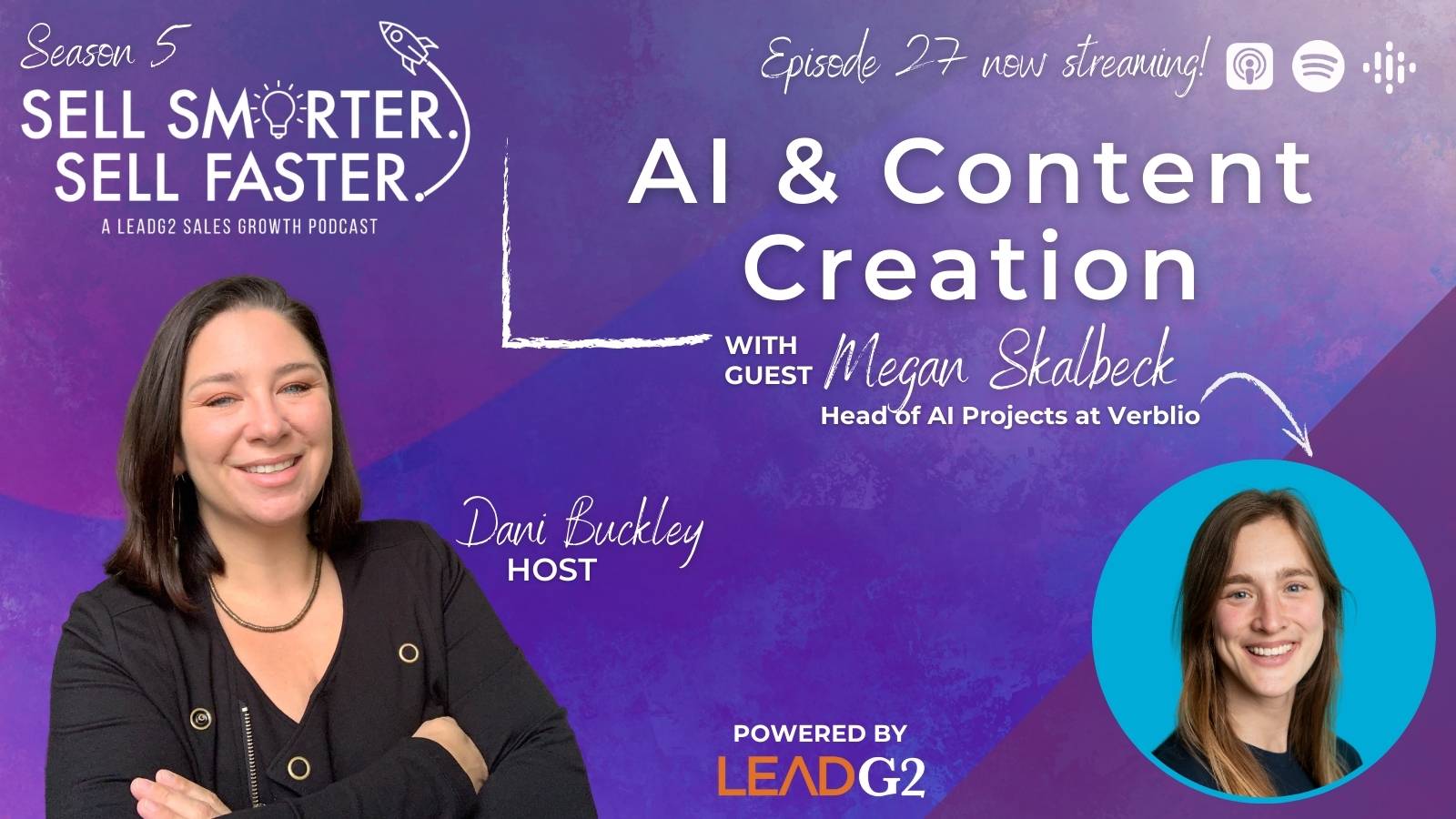Supercharge Your Sales with AI: Using HubSpot AI to Crush Your Day-to-Day
Sales teams are always searching for the next big thing to help them hit their targets and generate revenue. Enter artificial intelligence (AI) –...


In this episode, we’re discussing AI’s impacts on the world of SEO and what further changes can be expected down the road.
We ask questions like: What does the current state of SEO look like with the advent of so many AI technologies? How can marketers adapt their strategies to stay ahead of algorithm updates driven by AI? And how has AI affected how content is created and optimized for search engines?
Joining Dani to answer those questions and more is Tom Winter, CGO at SEOWind. Tom shares so many awesome points, like:
How, while AI has genuine superpowers, the human touch still matters.
Why it’s important to “live your KPI’s.”
And, finally, how we’re currently living in a time where AI is giving everyone the ability to compete with much bigger marketing teams.
“We’re going to talk a lot about SEO and AI today,” Dani says. “To get started, how would you describe the current state of SEO and, with the influx of AI tools, how is that shaping it all in your opinion?”
“Google, in my opinion, hasn’t really changed their approach in the last 20 years,” Tom says.
“When they were starting, they said, ‘We want to get the best possible answers to the end user.’ This was their goal. And over the past 20 years, they became a better referee [in that regard]. Everything sped up, and Google has gotten better and better at bringing in helpful content.
“And this is what is changing...You can see that Google is implementing Generative AI into search, but it will mainly focus on single-click or non-click searches. When you ask a question on Google, you’ll get the answer right there, but most questions are really simple.
“So, there’s plenty of space for us [marketers] because people still want to read longer content that they will find on pages. Google can’t implement [longer content] because the [generated] answer can only be three sentences to maybe two paragraphs.
“Let’s go with an example. Let’s say you want to make the perfect brisket. They will not be able to add the whole recipe [as the top AI-generated result] in Google.
“They will still point to the content that is written about the recipe, about the brisket, how to do it step by step, etc.
“And they still need sources of data [for these generated answers], so they can’t kill content.
“So, there’s plenty of developing space in the SEO world, but it’s all about creating helpful content.”
“What implications does this have for SEO practitioners, marketers, content creators, or really anyone that is thinking of using AI for content creation?” Dani asks. “What do they need to be thinking about?”
“It’s helped on both sides of the fence,” Tom says. “On one side, analyzing the content from Google’s perspective, they’re far better at identifying when something is helpful or not.
“There’s no cheating there. Throughout the last 20 years, when Google was developing its algorithm, we could see phases where people wanted to cheat Google by adding additional backlinks, adding hidden text, spamming with lots of content, etc. Google is a better referee [with all of that].
“What still stands is creating helpful content. We have to think about how we can add value to the content.
“So, for example, you’re in sales, you have a lot of experience talking to customers. AI doesn’t have that.
“There’s a lot of feedback that we can get from the product team, from customers, from our experience, our opinions, that we can add to the content to make it more helpful.
“We have to focus on helpful content, which actually brings in more traffic right now than it used to.
“I think there’s a huge opportunity right now.”
“I agree,” Dani says. “Tell me if you agree with this headline: We have new tools, new ways to do it faster and better. But the human touch matters.”
“Exactly,” Tom says. “AI has superpowers. But we have to take into account that we, as humans, also have superpowers.
“So, instead of fighting each other (like, “AI is taking all of our jobs"), let’s combine these two and work together.”
“You obviously have an AI tool,” Dani says. “You can definitely speak to SEOWind, but are there other specific AI tools or techniques that stand out to you?”
“ChatGPT is my best friend, honestly,” Tom says. “So, definitely use that. Use it and see how it works.
“But be aware, if you’re not getting the proper answer, that’s not ChatGPT's fault. That’s your fault.
“That just means that you didn’t add enough context; you didn’t ask the right question.
“It’s like working with a human. I treat it as a colleague on your team. If your colleague is not giving you proper answers, you probably asked the wrong question, or you didn’t provide all of the context they needed.
“The same applies to AI.
“I would also add, don’t expect a [perfect answer] with one click. If it worked with one click, we all shouldn’t be here; we are not needed, right?
“So, add value [on top of what it gives you]. You talk with customers, you talk with colleagues, and you know far more about your business and everything that is close to your niche. Add this value, and it will speed up your work.”
“How should businesses measure the success of their SEO efforts in this AI-dominated environment?” Dani asks. “Are there any new KPIs that are emerging?”
“I love to track revenue because I feel everybody can impact on that, and revenue drives business,” Tom says. “That’s easy. But I also understand that not everybody can feel the impact of their work on revenue.
“So, what I like to do, as a data-driven person, is to introduce something I call ‘leap of faith’ metrics.
“Let’s say, with content marketing, I drive an additional X amount of traffic to my website; 1% of this traffic will become my customers. So, I’m able to measure that if an additional 1000 in organic traffic, I can see how that can impact my revenue.
“Because the sales cycle can take anywhere from three months to sometimes a year for some companies, from a marketing perspective, I would have to wait almost a year to see results [from my efforts], which makes no sense. I can’t measure that.
“That’s why I like to use some metrics, but they all have to impact my North Star metric and they have to be as easy to measure as possible. If you can’t measure something, it’s useless.”
“And live the KPI’s. Live them, digest them every single day. Go back to them every week. Talk about them.
“Talk about how you impacted your KPIs this week. If you didn’t do anything, that’s okay, but say it out loud, ‘I didn’t impact my KPIs.
“Don’t start by defining what your KPIs are; look at them in three months. That makes no sense.”
Tom leaves Dani with this final thought: “If you’re thinking about using AI, any AI tool, just stop thinking and start working with it.
“Play around with it because right now, there is an opportunity to actually use it and amplify your ROI and productivity.
“If you wait, the ship may sail away because there’s a lot of companies that are currently using [AI tools], and I feel that we’re able to compete with much, much bigger teams.
“What I’m doing right now with a team of 10 people would, in the past, take a team of 50. So, there’s so much opportunity there.
“Don’t be afraid. You will make mistakes. That’s normal.
“Start now because there’s still so much space to grow in sales, marketing, content marketing, SEO, etc. But I don’t know how long this period will last because people may start catching up.”

Sales teams are always searching for the next big thing to help them hit their targets and generate revenue. Enter artificial intelligence (AI) –...

1 min read
The issue of AI is certainly what many would describe as a “hot button.” You don’t have to look far to find a firm opinion on the matter. And sure,...

In this episode of the Sell Smarter. Sell Faster. podcast, we’re exploring the ever-changing role of artificial intelligence (AI) in content...